Nobody can say for certain how many people were sent to Auschwitz. Nobody knows how many people were killed there.
But there is no doubt that it was the scene of one of the worst crimes in human history. Around 1.1 million people died in the Nazi concentration camp - mostly Jews.
Over the last week, the world remembered those horrific times between 1940 and 1945 when people were murdered in gas chambers, worked to death or starved under horrendous circumstances.
Two ceremonies - one in Jerusalem and one in Auschwitz - marked the 75th anniversary of the liberation of Auschwitz in German-occupied Poland by Soviet forces.
Survivors shared haunting stories to audiences filled with dozens of heads of states and a global audience as news channels had rolling coverage of the events.
However, an ongoing issue once again raised its head and cast a shadow of proceedings.
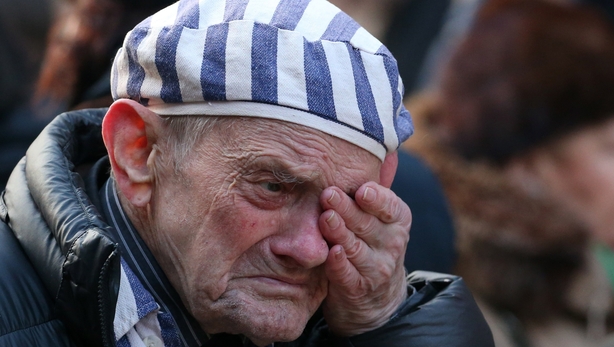
What happened?
Poland boycotted the ceremony in Jerusalem over Israel's decision not to offer its leader a speaking role.
Polish President Andrzej Duda criticised organisers for not giving him a slot to give remarks about the liberation of Auschwitz alongside three other representatives of World War II's allied powers including Russian President Vladimir Putin.
Mr Duda pushed for the podium - stating that he was the head of a country whose "citizens were the majority of Holocaust victims" and claimed the conference was a "falsification of history" after Putin recently claimed that Poland was culpable for World War II.
Both Russia and Poland disagree on many issues but in particular each country’s role in the Holocaust and the WWII.
In St Petersburg before Christmas, President Putin alleged that Poland shared responsibility for starting the war, arguing that Hitler could have been contained if Warsaw had let the Red Army pass through Poland the year before it was invaded by Nazi Germany in 1939.
Mr Putin also said that Poland collaborated with Nazi Germany and should bear responsibility for the war - labelling Poland’s ambassador to Nazi Germany "a scumbag and an anti-Semitic pig".
Poland’s prime minister launched a furious response in a four-page statement slamming the Russian president and accusing him of "repeated lies".
The event at the end of January was the latest episode in a bitter conflict and re-opened old wounds.
So, what are the facts?
On 1 September 1939 Nazi Germany invaded Poland, sparking the beginning of World War II.
Six million Polish citizens would be killed by the Nazis - half of them Jewish.
On the eve of the German occupation of Poland, 3.3 million Jews lived there. By the end of the war, approximately 380,000 Polish Jews remained alive, according to Israel's official memorial to the victims of the Holocaust, Yad Vashem.
Some of the worst atrocities by Nazis happened on Polish soil which was, at the time, occupied by Germany.
Jewish people had been murdered, mostly in the ghettos and the six death camps operated by German SS units, including Chelmo, Belzec, Sobibor, Treblinka, Majdanek and Auschwitz-Birkenau.
Even though Nazis imposed the death penalty on those who were caught helping Jews, there were thousands of Poles who risked their lives to protect them during the Holocaust.
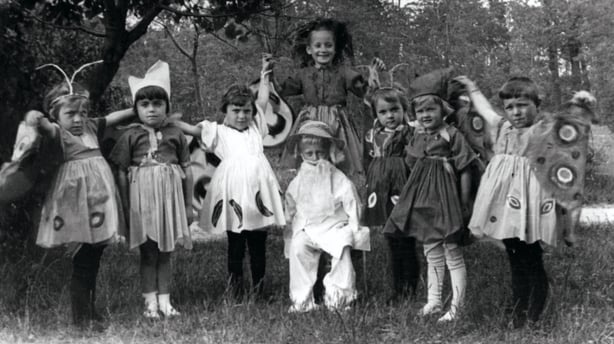
Around 7,000 are recognised by Yad Vashem as among the 'Righteous Among the Nations' for their efforts to assist Jews during the war.
Irena Sendler, Jan Karski, Witold Pilecki are just three of the many celebrated figures who are distinguished for their heroic deeds, according to Dr Kasia Szymanska, lecturer of Polish culture at Trinity College Dublin.
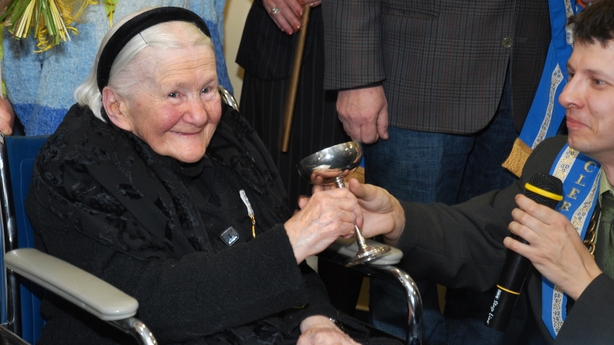
However, despite this, the Jewish population in Poland was often the target of discrimination and violence.
"On the other hand, a number of completed and ongoing studies point to much grimmer stories about some Poles denouncing the Jews in order to save their own lives, while others were involved in terrible massacres such as those of Jedwabne, Wąsosz and Radziłów" said Dr Szymanska.
Two noteworthy historians exposed anti-Semitic attacks by Poles over the decades.
In 2000, Jan Gross revealed that Poles were guilty in 1941 of murdering Jews in the Jedwabne pogrom. Mr Gross wrote in his book 'Neighbors' that 350 Jewish people were burned to death by their Polish neighbours one afternoon.
"I can't sleep at night. I see it as if it were yesterday … that terrifying scream that probably didn’t last for more than two minutes, it’s still inside me" wrote Anna Bikont in 2004 who was ten years old at the time of the massacre.
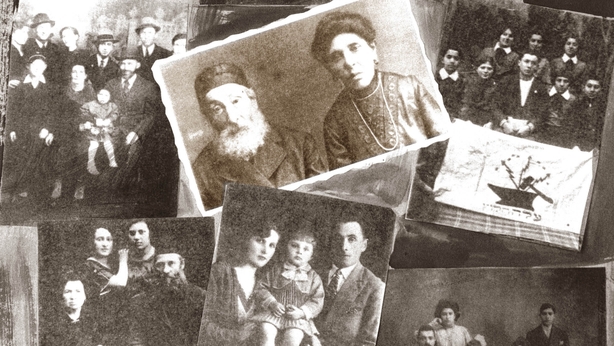
A decade later, historian Jan Grabowski published an account of Polish citizens hunting down and murdering Jewish Poles in Dąbrowa Tarnowska, a rural county in south-eastern Poland.
"The present Polish government doesn't like to admit that there was anti-Semitism or that there was a certain degree of Polish collaboration with the Holocaust" said Geoffrey Roberts, Emeritus Professor of History at UCC and an expert on Soviet history.
He said that there is "absolutely no doubt" the Poland were perpetrators of anti-Semitism. However, Professor Roberts said that their role should not be exaggerated.
"It was a minor role and in fact there was more anti-Semitism and collaboration with the Nazis in other countries than there was in Poland for example in Latvia, Lithuania and Estonia" he said.
Dr Szymanska said that those who helped and those who did not account for the complexity of Polish-Jewish relations during the war and "demonstrate how nuanced and sensitive the question of complicity can be".
The Polish government's response
When President Duda boycotted Jerusalem's commemoration, this move once again highlighted his government’s efforts to push forward their preferred account of WWII.
The current Polish government refuses to say that the country has some responsibility for crimes against Jews during the war.
That is despite gestures by previous leaders like Polish President Bronislaw Komorowski who once acknowledged the complicity of some of his countrymen in the Holocaust.
"The nation of victims was also the nation of perpetrators," he said in 2015.
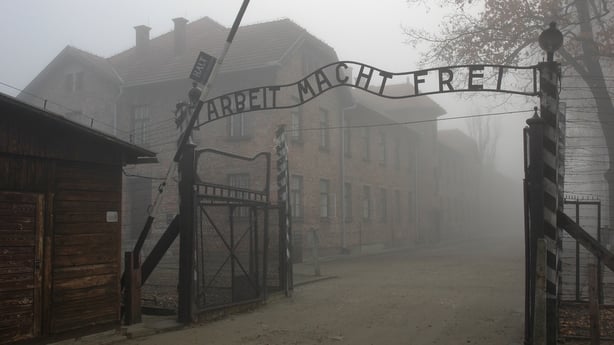
The current ruling Law and Justice party in Poland has been attempting to minimise the role its own people played in helping Nazi occupiers kill Jews.
"People presenting themselves as the victim is not an unusual phenomenon. The crucial thing you have to remember ... Poland was one of the most devastated countries of the Second World War," said Prof Roberts.
Portraying Poles primarily as rescuers of Jews during the Holocaust appears to be the Polish government's focus.
It also pushes a meticulous use of preferred language when referring to Poland's place in World War II.
And those in top office have learned to be careful with their words. In 2012, US President Barack Obama apologised for using the phrase "Polish death camp", when discussing concentration camps, after coming under heavy criticism.
"In referring to 'a Polish death camp' rather than 'a Nazi death camp in German-occupied Poland', I inadvertently used a phrase that has caused many Poles anguish over the years and that Poland has rightly campaigned to eliminate from public discourse around the world," he wrote at the time.
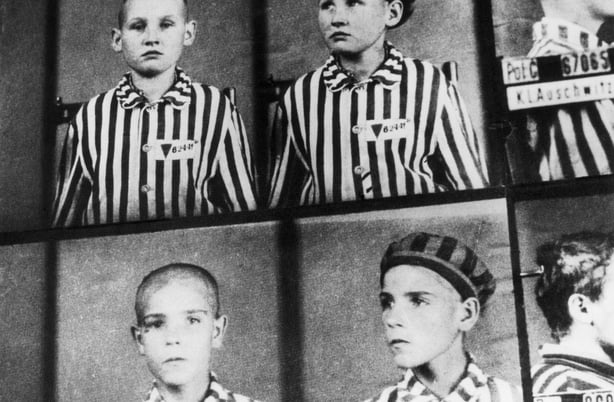
In 2018, the Polish government also tried to introduce a law that sought to criminalise anyone who blamed the Polish nation for the Holocaust or uttered the phrase "Polish concentration camp".
Those found guilty could have faced up to three years in prison.
The move ignited revolt with Israeli President Reuven Rivlin stating it was undeniable that while many Poles had fought the Nazis in World War II, "Poland and Poles had a hand in the extermination" of Jews during the Holocaust.
Following international pressure, the law was altered a few months later.
It was changed from a criminal to a civil offence as the head of the prime minister’s office, Michal Dworczyk, said the legislation was intended to "defend the good name of Poland".
He said: "It is difficult to see how historians can continue to excavate the darkest corners of Polish history with the threat of imprisonment hanging over them".
Prof Roberts said: "Whenever politicians get involved in emotive kind of historical discussions like this, it's inevitable they're going to distort history and use it for their own political purposes.
The fight doesn't stop there. As recently as November, Poland’s prime minister wrote to Netflix to insist that changes be made to a documentary about a Nazi death camp.
A map in 'The Devil Next Door' located the death camps within modern-day Poland’s borders.
According to Mateusz Morawiecki is misrepresents Poland as being responsible for the camps when it was occupied by Germany in World War II.
Why is this all so important?
As memories fade with dwindling numbers of firsthand accounts of the Holocaust, there are warnings not to forget what happened.
"Here, as at Auschwitz and many other places in Europe, we are overcome by the echo of the heart-rending laments of so many. Men, women and children cry out to us from the depths of the horror that they knew. How can we fail to heed their cry? No one can forget or ignore what happened. No one can diminish its scale." - Pope John Paul II at Yad Washem in 2000
It is important that history is recorded as accurately as it can be, said Prof Roberts.
"The fundamental problem is the rise of a more radical version of nationalism - ultra nationalism - a populist kind of nationalism.
"There are certainly lots of dangers arising from that ... including extreme distortions of history [and] of the past just to suit particular nationalist narratives ... that's where I would see the main danger to be," he said.
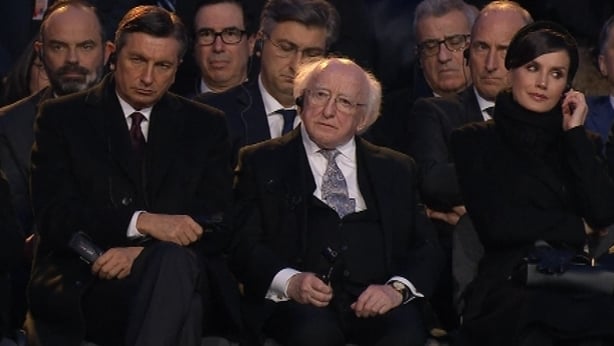
Failing to remember the mayhem, and what led to it, could have consequences according to President Michael D Higgins.
"As time continues to pass, and as we move further away chronologically from that darkest period of history, it becomes thus even more imperative that we understand the importance of remembering what led to that barbaric chapter, its consequences, and learn from it," he said at the Holocaust Education Trust Ireland this week.
President Higgins said ''misused nationalism and populism'' are a reminder of just how fragile democracy is.
Chair of Holocaust Education Trust Ireland Eibhlin Byrne told the same event that "it becomes even more important to educate generations now living, and those to come, about the inhumanity which man can inflict on man when all that is decent and all that is good is lost.''







